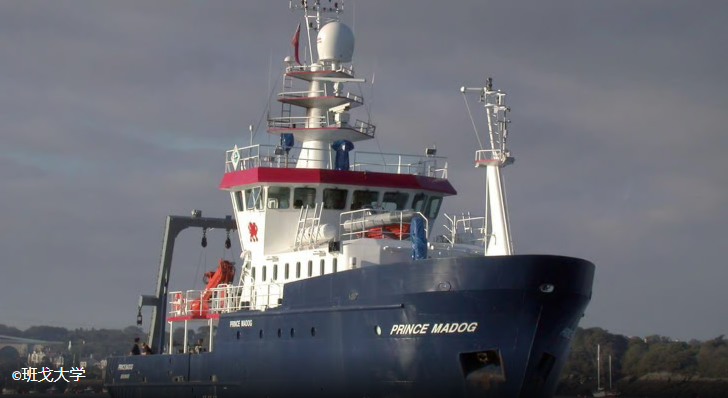
The Prince Madog research vessel is set to be powered by hydrogen in the £5.5m ($6.65m) Transship II project.
The project is the ‘largest’ retrofit of its kind to date and will see the vessel fitted with a hydrogen electric propulsion system that hopes to enable zero- to low-emission operation by 2025.
The new hydrogen propulsion system will work in conjunction with a diesel-fuelled main engine and enable zero-emission operation at slow speeds or over short distances. In normal operation, the hybrid system and new propulsion design will reduce emissions by up to 60%.
It is part of the Clean Maritime Demonstration Competition Round 3 (CMDC3), funded by the UK Department for Transport in partnership with Innovative UK.
It will be delivered by a consortium of major UK innovators in green maritime technology and hydrogen systems, led by O.S Energy which own and operate a fleet of dedicated offshore service vessels.
Other consortium partners include H2Tec, Solis Marine Engineering, Newcastle Marine Services, Chartwell Marine, Cedar Marine, Stone Marine Propulsion and the Universities of Exeter and Newcastle-Upon-Tyne. It was supported in its bid by Menter Môn, the developer of the Holyhead Hydrogen Hub, a potential local green hydrogen supply partner for the consortia.
The Prince Madog is co-owned by Bangor University in Wales and recently celebrated 20 years of service to education and science.
Martin Nuernberg, Managing Director of O.S Energy, said, “The Transship II project is a testament to our commitment to innovation and environmental responsibility and will demonstrate the potential of green technology application in the maritime industry.”
Professor John Turner, Head of Bangor University’s School of Ocean Sciences, added, “With an ambition to be leaders in this field, it is only fitting that our vessel is moving over to cutting edge technology which significantly reduces emissions.
“Reducing our carbon footprint by moving over to hydrogen power means Bangor University can continue to build upon our world-leading understanding of the environment and physical positioning of marine energy sites in a sustainable way.”
The Offshore Renewable Energy Catapult (OREC) estimated the offshore support sector will be worth £26bn ($31.3bn) by 2050 and that an additional 1,200 vessels will be needed to service the UK’s industry and support the transition to Net Zero by 2050.
The company states around 90% of all consumables are moved by the sea and the shipping industry globally is responsible for 940 million tonnes of carbon dioxide (CO2), the equivalent of at least 2.5% of the world’s total CO2 emissions.
Marine SMEs Krensen, Trident Marine Electrical and ACUA Ocean recently announced a partnership to develop marine hydrogen powertrain solutions, funded by the Clean Maritime Demonstration Competition Round 2.